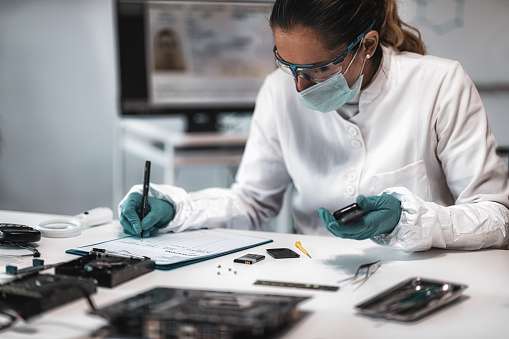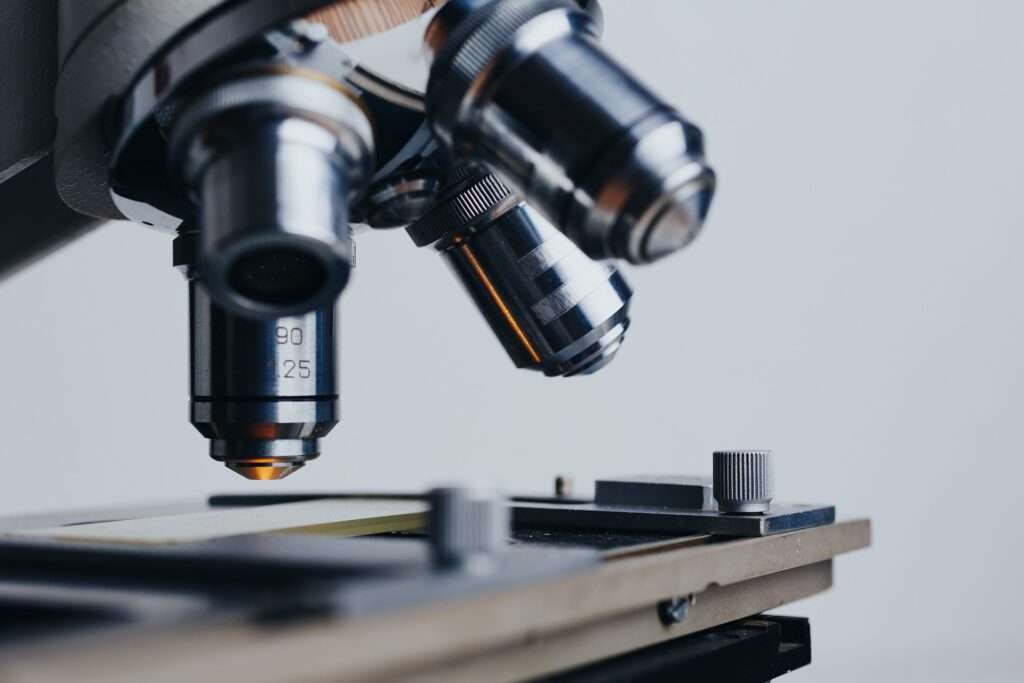What is BSC Forensic Science
B.Sc. Forensic Science is a bachelor’s program that focuses on the application of scientific methods and procedures to examine and evaluate evidence related to crimes. It gives students the knowledge and abilities they need to participate to the criminal justice system and aid law enforcement in resolving challenging situations.
This program equips students with a satisfying career in forensic science through a blend of theoretical and practical instruction.
Importance of B.Sc Fornsic Science

- Vital for crime investigation and evidence analysis.
- Supports the justice system with reliable scientific findings.
- Expertise in evidence collection and preservation.
- Provides victim support and sensitivity.
Core Concepts and Course Structure
The BSC Forensic Science program covers a range of core concepts and offers a well-structured curriculum that equips students with the necessary knowledge and skills in the field of forensic science. Below are the key elements of the core concepts and course structure:
Crime Scene Investigation
- Techniques for the systematic approach to crime scene investigation.
- Evidence collection, preservation, and documentation protocols
Forensic Chemistry
- Principles of chemical analysis applied in forensic investigations.
- Analyzing substances such as drugs, toxins, and trace evidence.
Forensic Biology
- Study of biological evidence, including DNA analysis and serology
- Identification of body fluids and genetic profiling..
Forensic Toxicology
- Understanding the effects of drugs and poisons on the human body.
- Analyzing toxic substances in biological samples.
Forensic Anthropology
- Application of anthropological techniques in the identification of human remains.
- Determination of age, sex, and ancestry from skeletal remains.
Digital Forensics
- Investing in digital evidence from computers, mobile devices, and online platforms.
- Techniques for data recovery and analysis in cybercrime investigations.
Forensic Ballistics and Firearms
- Study of firearms, ammunition, and ballistic analysis.
- Determination of the source of fired projectiles.
Fingerprint Analysis
- Study of fingerprint identification and comparison.
- Techniques for fingerprint processing and database searching.
Forensic Document Examination
- Analysis of questioned documents, including handwriting and forgery.
- Comparison of handwriting samples and document authentication.
“The B.Sc Forensic Science course structure typically includes a combination of lectures, laboratory work, practical training, and internships. Students gain hands-on experience in crime scene investigation, evidence analysis, and the use of advanced forensic technologies.”

Role and Responsibilities
1.Evidence Collection and Analysis:
Forensic scientists are in charge of carefully gathering, conserving, and evaluating various kinds of evidence discovered at crime scenes. They use scientific methods to find important hints that can help resolve criminal cases.
2. Crime Scene Investigation:
Forensic specialists are essential to the crime scene investigation process. In order to piece together the series of events leading up to the crime, they carefully examine the site, record findings, and reconstruct occurrences.
3. Expert Testimony
Expert testimony: Forensic scientists frequently testify as experts in court proceedings. In court, they submit their research and expert testimony to the jury and judge, assisting them in comprehending the intricate scientific evidence.
4.Collaboration with Law Enforcement
Collaboration with Law Enforcement: To support criminal investigations, forensic experts collaborate closely with law enforcement authorities. Their knowledge and analysis greatly aid in developing
Top BSc Forensic Science Colleges in India
1. Jadavpur University
One of India’s oldest and most prominent universities is Jadavpur University, located in Kolkata. The National Board of Accreditation (NBA) has granted it accreditation for its three-year BSc Forensic Science program. Among the many areas covered in the course are forensic biology, forensic toxicology, forensic chemistry, and forensic ballistics.

2. Savitribai Phule Pune University
Another prestigious university in India that provides a BSc Forensic Science course is Savitribai Phule Pune University in Pune. The course is approved by the NBA and includes a wide range of subjects, such as forensic biology, forensic toxicology, forensic chemistry,
3. Bharati Vidyapeeth’s Colleg
Bharati Vidyapeeth’s College of Forensic Science is a private college in Pune that offers a 3-year BSc Forensic Science course. The course is accredited by the NBA and covers a wide range of topics, including forensic chemistry, forensic biology, forensic toxicology, and forensic serology.
4. Symbiosis International University
Pune: Symbiosis International University is a private university in Pune that offers a 3-year BSc Forensic Science course. The course is accredited by the NBA and covers a wide range of topics, including forensic chemistry, forensic biology, forensic toxicology, and forensic psychology.
5.Kirstu Jayanti College
Another prestigious university in India that provides a BSc Forensic Science course is Savitribai Phule University in Pune. The course is approved by the NBA and includes a wide range of subjects, such as forensic biology, forensic toxicology, forensic chemistry,

Conclusion
Pursuing a B.Sc in Forensic Science opens the door to a world of intrigue and impactful contributions to the criminal justice system. With a comprehensive curriculum covering various forensic disciplines, graduates are equipped with the knowledge and skills needed to meticulously collect and analyze evidence, reconstruct crime scenes, and provide expert testimony in court.
FAQ's
B.SC Forensic Science is a 3-year undergraduate degree program that focuses on the application of scientific knowledge to the investigation of crime. The course covers a wide range of topics, including forensic chemistry, forensic biology, forensic toxicology, and forensic odontology.
There are a variety of career options available to graduates with a BSc Forensic Science degree. Some of the most common career paths include:
- Forensic Scientist: Forensic scientists work in laboratories to analyze evidence from crime scenes. They use their knowledge of science to identify and interpret evidence, which can help to solve crimes.
- Crime Scene Investigator: Crime scene investigators collect and preserve evidence from crime scenes. They work closely with forensic scientists to ensure that evidence is properly analyzed.
- Law Enforcement Officer: Law enforcement officers use their knowledge of forensic science to investigate crimes. They may also work as crime scene investigators or forensic scientists.
- Attorney: Attorneys use their knowledge of forensic science to defend clients in court. They may also work as consultants to law enforcement agencies.
The eligibility criteria for BSc Forensic Science vary from college to college. However, most colleges require students to have passed 10+2 with a minimum of 50% marks in science subjects. Some colleges may also require students to have taken a specific set of science subjects in 10+2.






